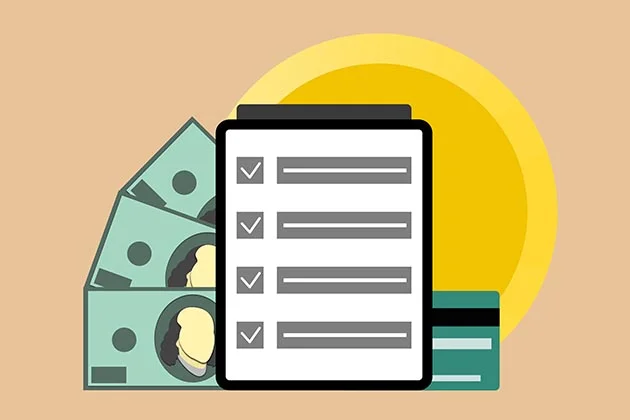Understanding credit checks is essential before applying for a new credit card, personal loan, or a mortgage. The Balance lists three major credit bureaus in the US that often perform these credit checks: Experian, Equifax, and TransUnion. And while they can be simply defined as checking a rundown of information about your existing and past credit and habits as a borrower, there’s more to credit checks than meets the eye.
What are credit checks?
A credit check is also known as a credit search. They typically occur when a company looks at your credit report to understand your financial behavior before they make any decision regarding your application. They might look at how responsible you are with paying back credit on time, how much credit you currently have, and financial associations. Usually it is banks, credit providers, utility companies, and landlords that do the credit checks.
According to ‘Can Employers See Your Credit Score?’ by CNBC, employers are also known for running credit checks on potential hires. Almost a third of all companies pull credit checks on their candidates, while 16% do an overall financial check. You’ll know when credit checks occur because your permission is needed somewhere in your application for a significant financial commitment.
What’s the difference between hard and soft credit checks?
In the article ‘What’s the Difference Between a Hard and Soft Credit Check’ by Upgraded Points, they explain that the main difference lies in how hard credit checks affects your credit score. Hard checks occur when lenders, credit card companies, and landlords request for them — often for a mortgage, rental, credit, car, or student loans. Hard checks are recorded on your credit report, and can oftentimes drop your credit score.
Soft credit checks are similar in nature, but don’t affect your credit score whatsoever. Moreover, your permission isn’t required for companies to run soft checks, as they are mainly performed as part of background checks. For example, card issuers could use them to verify if you are qualified for any offers or rewards. Employers’ credit checks could be categorized under soft credit checks, and will only show up on your own credit report.
Why do credit checks matter?
Although we mention in ‘An Easy Guide to Understanding the Process of Taking Out a Loan’ that there are financial assistance options that don’t require credit checks, this isn’t always the case. Most major options will want to make sure that you are a responsible borrower before approving your applications. This is why it’s important to understand how credit checks impact your score.
Because hard checks are only removed from your report after two years, make sure to plan your loan applications accordingly. You could also look into lenders that will allow you to shop for the best loans without incurring additional hard inquiries. Moreover, you can view the soft inquiries on your credit reports to get a good grasp of your credit health, and to check if you’re eligible for any rewards or competitive deals.
What should I do before getting a credit check?
To raise your chances of passing a credit check, there are a few things you can do. Try to keep your credit card utilization ratio under 10% to improve your score, and try to pay off any extra debt. Likewise, you could also increase your credit card limit. Another step you can do is to pay your bills on time, as payment history plays a major part in your overall score. You could also use your yearly free credit report from one of the three main credit bureaus.
Building good credit entails understanding how credit checks can affect your score. Hopefully, this article has been helpful to your journey to building a strong credit profile and has helped you become more responsible with your assets. To learn more, check out the rest of our finance articles here at CEO Views.










